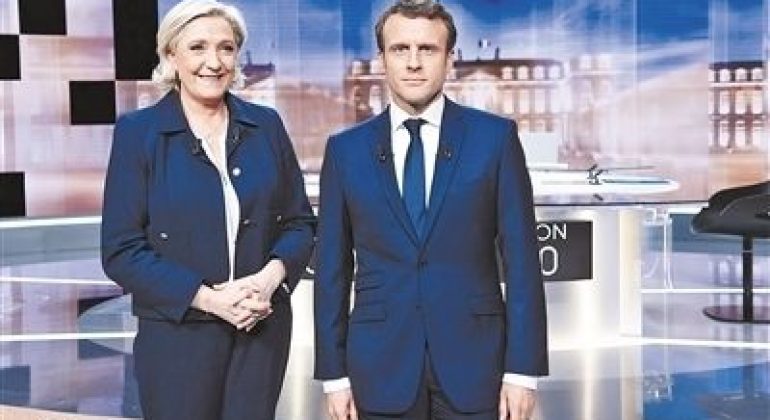L’presidential election in France fascinate the crowds in China? Nothing comparable to five years earlier, according to the statistics of the main search engine Baidu, analyzed by the shanghai cabinet Daxue Consulting. In 2017, the suspense was almost total before the second round. Marine Le Pen (勒庞) and François Fillon captured the majority of traffic, ahead of a young unknown candidate named Emmanuel Macron (Macron).
A five-year term later, the French election is drowned in the media by the war in Ukraine and especially the health situation in China. Moreover, the question of France’s relations with the Middle Empire is almost absent from the electoral campaign, dominated by the Russian invasion, the increase in the cost of living and immigration. The few articles published by the official Chinese press are therefore content to give the results of the 1is round and the latest polls, but very few come forward to deliver any prognosis on the final duel.
In a veiled critique of the democratic system, some scholars note that the abstention rate raised to 1is turn (26%) shows that many French voters have abandoned the idea of being able to change the destiny of the country by voting: ” a moment of political apathy that may well have more impact on the future of France than the results of these elections on April 24 », Analyzes Tian Dewen, vice-director at the Chinese Academy of Social Sciences (CASS).
The few academics and Internet users who show an interest in the French ballot are mainly interested in the Past President. Very popular among Chinese intellectual circles, Emmanuel Macron is appreciated for having emphasized the cooperation with China during his tenure. During his first official visit in 2018, the leader also promised to return to the Middle Kingdom every year. The pandemic will unfortunately have cut short this project and it is clear that since then, the tone of the French president vis-à-vis Beijing has gradually hardened (BRI, 5G, Covid-19, etc.).
Nevertheless, his efforts to transform France into a “ balance power “, not being afraid to engage in dialogue with the historical enemies of the United States such as Russia or Iran, seduce in China, just like its desire to increase ” strategic autonomy ” of the’European Union – unlike its rival Marine Le Penknown for its populist and anti-European policies.
Far behind Emmanuel Macron in terms of traffic, the opponent of the National Rally is already somewhat known to the Chinese public, who associates him with the extreme right. In 2017, she made waves by proposing a “Frexit” and advocating tougher immigration. This time, it is positively noticed in China by wishing to withdraw France from the integrated command of theOTAN – which earned him the comparison to General de Gaulle – and opposing sanctions hitting Russia. However, Chinese experts fear that a victory for Le Pen will disrupt the already strained relations between Beijing and Brussels.
In the end, Chinese observers are not so different from French voters: they judge the candidates on what they could bring to the future of their country.
* The unsuccessful candidates also had something to seduce Chinese opinion: the communist/rebellious Jean-Luc Melenchon who declared that France has nothing to do in the Taiwan Strait; Eric Zemmour, for its nationalist program; Valerie Pécresse for his many visits to China and his benevolence towards the deployment of Huawei in Europe…
–


